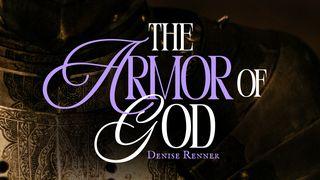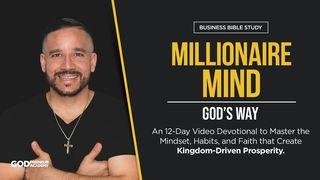Literarily: 8 Days of Understanding Genres of the Bible by Kristie AnyabwileSample

Gospels & Acts
Scripture - Matthew 25:1-13
Read today's passage of scripture before continuing to read this devotion.
Make a list of the elements in the parable and what they represent. What two types of people are being compared? Compare and contrast them. What is this parable actually about? In one or two words, what is the main lesson from this parable? As a believer, how should you respond to the message of this parable?
Throughout the Gospels, Jesus speaks! What an extraordinarily normal activity for the King of kings, that He would speak to His rebellious ones, His faithful ones, His betrayers. Our Lord came to earth in human flesh to live among us so we might be partakers of His kingdom. Surely if we hear His words in the pages of Scripture, we should pay attention. All of Scripture is the Word of God and carries power and authority. But it is still a marvel to see Jesus’ own incarnated words written down in Scripture for us. Jesus speaks privately to individuals like Nicodemus or the woman at the well. He speaks to small groups of His disciples, explaining parables and teaching them about all that He and they would suffer. He speaks to crowds on mountaintops and on the shore of the sea, proclaiming the good news of His gospel.
Think of the Gospels and Acts more like campfire stories and less like a chronology or linear story you might find in a book. Each story is a self-contained unit. We call any excerpt or passage of Scripture that fits together as a unit a pericope (puh-RIC-uh-pee). In a narrative, the plot holds together the pericope. The bulk of the Gospels and Acts comprises narrative material, so to decide which verses to include in a pericope, pay attention to the plot, scene and topic changes, and time references.
A parable is a short story that teaches a lesson through allegories (stories with veiled meaning) and comparisons. Dialogues are two-way conversations. To understand the dialogues of Jesus in the Gospels and of the apostles in Acts literarily, identify the conversation partners, the topic or questions addressed, and responses, especially Jesus’s responses. Many of Jesus’ speeches and sermons are long and contain lots of smaller pericopes that may blur the big picture. Note any repetitions of words, phrases, or themes that may provide a clue to the overall message of the speech or sermon.
As you study the gospels and Acts, remember that fulfill all of God’s instructions in the law. He is the end to which history is pointing. He is the One to whom the poets sing, the One from whom we receive wisdom and understanding, and the One whom the prophets foretold.
Scripture
About this Plan

In this eight-day study, you will learn about the major genres of Scripture - Law, Old Testament Narrative, Poetry, Wisdom, Prophecy, Gospels & Acts, Epistles, and Apocalyptic. We can deepen our understanding of God's Word by learning to study the Bible according to its literary genres. Whether you are new or seasoned in Bible study, this plan is intended to provide a framework for reading and understanding each genre.
More
We would like to thank Moody Publishers for providing this plan. For more information, please visit: https://www.moodypublishers.com/literarily
Related Plans

The Armor of God

Daily Godpreneur: Millionaire Mind

Power at Sunrise: 30 Days of Reconstructing Your Life With the Word

Bible App for Kids – Discover God’s Big Story

God Is in Control

Happy to Work

Written in Heaven: His Story, Our Lives

Helping Your Kids Know God's Good Design

Advent Meditations: Peace
